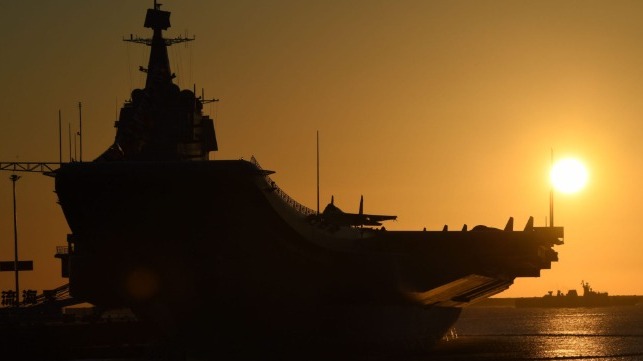IMPERIALISM COLONIZING THE SEA
China Stokes Anxiety with New Maritime Law

Under a revised maritime traffic safety law published earlier this year, certain foreign vessels sailing in Chinese-claimed waters will be required to give advance notice to China's maritime authorities starting September 1.
The controversial law requires foreign operators of submersibles, nuclear vessels, ships carrying radioactive materials and ships carrying bulk oil, chemicals, liquefied gas and other toxic and harmful substances to provide detailed information including the vessel name, call sign, current position, cargo, port of call and estimated time of arrival.
Issued by the Maritime Safety Administration (MSA), the law stipulates stiff penalties and fines for noncompliant ships and gives Beijing the power to order vessels that threaten the safety of the country’s internal or territorial waters to leave.
“This law is developed for the purposes of strengthening maritime traffic management, maintaining the maritime traffic order, ensuring the safety of life and property, and safeguarding the rights and interests of the state,” states the law as revised and adopted by the Chinese National People’s Congress in April.
Although Beijing asserts that the new law will apply to navigation and maritime safety, emphasis on “the sea areas within the jurisdiction of China” has stoked anxiety over the navigation of ships in the wider Indo-Pacific region.
China claims sovereignty over the vast majority of the South China Sea, including areas located hundreds of miles beyond the 12-nm limit accepted under the United Nations Convention on the Law of the Sea (UNCLOS). The nation has occupied and developed multiple islets in the Paracel and Spratly Islands, building forward military bases equipped with air defense systems, strategic runways and piers for naval vessels.
“China is once again testing the international community to gauge how it will react to the enactment of yet another maritime law that exceeds the permissible jurisdictional limits of international law, as reflected in UNCLOS,” said Raul (Pete) Pedrozo, Professor of International Law at the Stockton Center for International Law, in a recent analysis.
Pedrozo predicts that Beijing will use the new law to engage in grey zone operations below the threshold of armed conflict, seeking to intimidate its neighbours and further erode the rule of law at sea.
Notably, the new law grants the MSA the powers to establish ship routing and reporting areas, traffic control areas and restricted navigation areas. Ships passing through important fishery waters, areas with dense maritime traffic, ship routing areas and traffic control areas must strengthen their lookout, maintain safe speeds, and comply with special navigation rules.
The new law asserts that foreign warships and other government vessels used for non-commercial purposes that violate Chinese laws and regulations while engaged in innocent passage shall be dealt with in accordance with “the relevant laws and administrative regulations.”
No comments:
Post a Comment